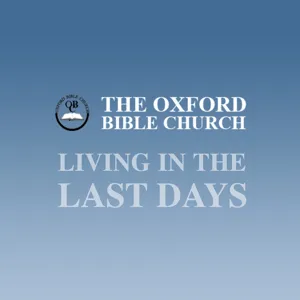
Paul generally dictated his letters to a scribe, and then wrote the greeting at the end in his own handwriting, to personalise and authenticate the letter. But in Galatians 6:11-18 he wrote his whole conclusion in his own handwriting, using large letters (v11). He clearly wanted to put great emphasis on these final verses. In them, he contrasts the 2 kinds of religion (the 2 ways of salvation and living) represented by his opponents and himself. On the one hand, the legalists promoted a religion of human accomplishment, emphasising the keeping of externals, focusing on the outward form of godliness, but denying its power, making a good showing in the flesh to gain the praise of man, and to avoid persecution (6:12-13). On the other hand, Paul preached the Gospel of Divine achievement (grace), centred on the Cross of Christ, which is is the power of God unto salvation, able to make us New Creations, and change our hearts with the love and grace of God (6:14-15).
These 2 ways oppose each other because legalism encourages self-righteousness, but the Cross declares that everything that a man can produce from himself in his external works and law-keeping is only worthy of judgment, and therefore he cannot save himself, because he continually breaks the law of God in his heart (v13). Therefore, preaching the Cross to the self-righteous often results in persecution, because it bursts their bubble.
The true faith is based on the Cross, and true believers embrace and boast in the Cross rather than in themselves and their own achievements (6:14), because they know all their righteousness and salvation comes through the Cross of Christ. We are saved through personally receiving Jesus as our Lord and trusting in His perfect work on the Cross. When we trust in Christ for our salvation, we were put (baptised) into Christ; our old man was crucified with Christ and we are risen with Christ as a New Creation - this is a work of God's grace, independent of our works, or whether or not we are circumcised (6:15). This truth of salvation by grace through faith (6:15) is described as the fundamental rule, which characterises and governs the life of all true believers (6:16). That is, our whole christian life flows out from the foundation and well-spring of our salvation by grace through faith.
When we accept the Cross and are crucified with Christ, we are born again into the Kingdom of God. This fundamentally changes our relationship with the world, as Paul says: "by whom (Christ and His Cross), (1) the world has been crucified to me, and (2) I have been crucified to the world" (6:14). The Cross created a separation between us and the world. (1) Now we see the true nature of the world through the standpoint of the Cross, as being under God's judgment - so we no longer love the world, or get our values from the world, but instead we find our meaning and value from our relationship with God. (2) Like a man hanging on a cross, we are in this world, but no longer of it (John 17:14-18). We are still alive in this world and it can still tempt us, but we know that we no longer belong here - we are outsiders, not insiders. A crucified man is no longer enmeshed in the world-system. The world can offer him nothing. He knows his time is short here, and he is just passing through, for he is on his way to a different destination. Likewise, through embracing (boasting in) the Cross, we lose our attachment to this world, knowing that our destiny is with God, and so we look for His praise, rather than the world's praise. In this way, Paul contrasts himself with the motives of the egotistical false-teachers. Whereas Paul seeks the praise and glory of God and the triumph of His grace in the lives of the Galatians, his opponents want them to be circumcised, so that they would look good to their fellow Jews (for turning the Galatian believers into Jews), and so be praised by the Jewish world. Therefore, they reject the message of Cross, which glorifies God and condemns all man-made righteousness, because identification with the Cross would mean rejection and persecution from their world.










